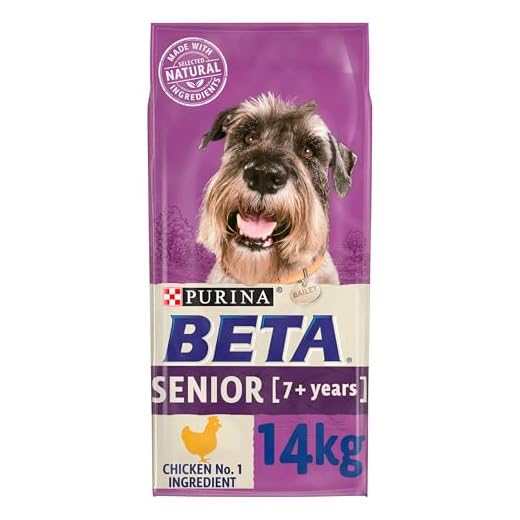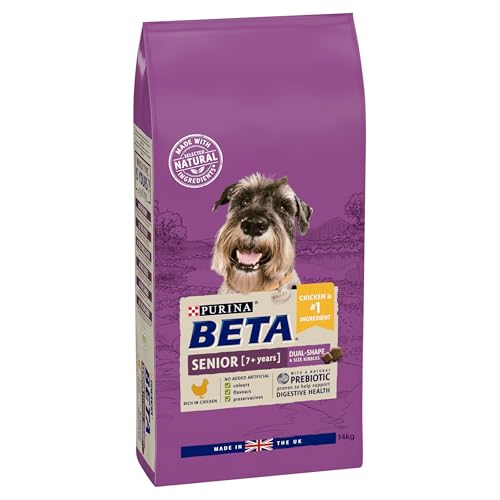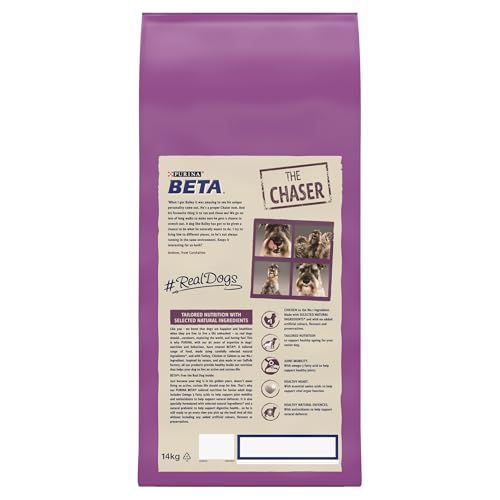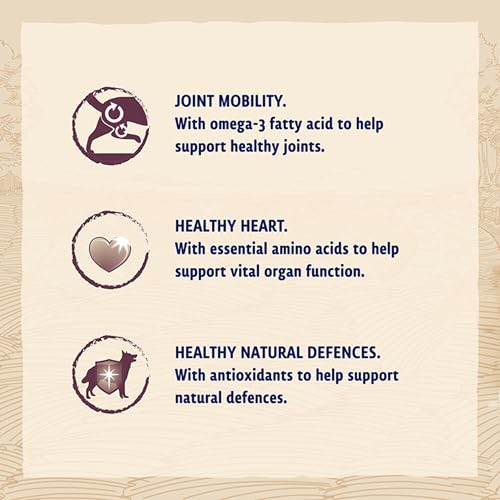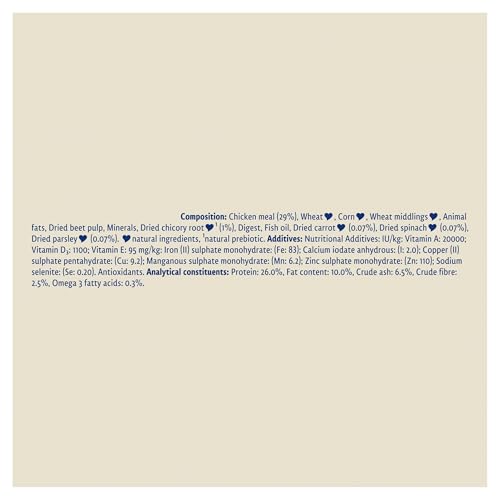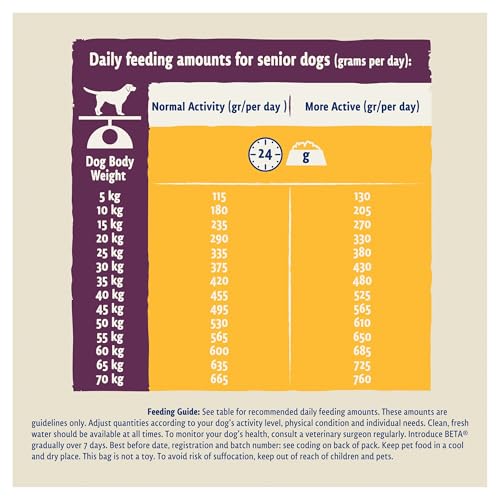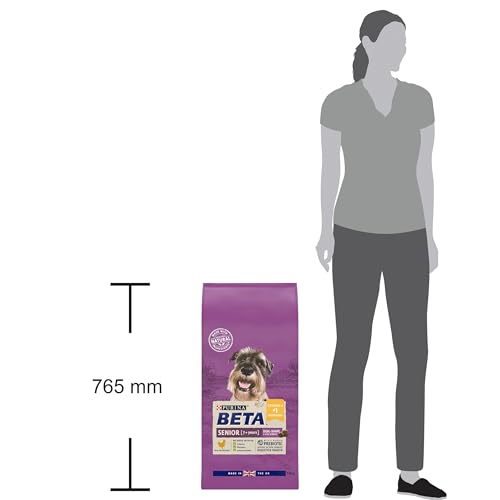


As a devoted pet owner with a senior dog, ensuring they receive the best nutrition is paramount to their health and happiness. Senior dogs often require special diets tailored to their changing nutritional needs. One crucial aspect is ensuring they receive sufficient calories to maintain their energy levels and overall well-being. High-calorie dog food designed specifically for seniors can play a pivotal role in supporting their vitality and quality of life during their golden years.
Choosing the right high-calorie dog food involves understanding the unique requirements of senior dogs. Aging can lead to decreased metabolism and changes in digestion, making it essential to select a formula that not only provides ample calories but also supports joint health, maintains muscle mass, and promotes a healthy weight. Factors such as protein content, fat sources, and the inclusion of vitamins and minerals tailored for older dogs are crucial considerations when selecting the ideal food for your senior canine companion.
In this article, I’ll delve into the key features to look for in high-calorie dog food for senior dogs, as well as review some of the top-rated options available on the market today. Whether your senior dog is a small breed enjoying their golden years or a large breed slowing down gracefully, finding the best high-calorie food can significantly enhance their quality of life and ensure they remain active and content for years to come.
Understanding the Nutritional Needs of Senior Dogs
As our dogs age, their nutritional requirements change, necessitating a tailored approach to their diet. Senior dogs often experience decreased metabolic rates and changes in their digestive abilities. For instance, my elderly canine companion has become less active over the years, so I’ve had to adjust her diet to ensure she maintains a healthy weight without losing muscle mass.
Protein intake is crucial for senior dogs like mine, as it supports muscle maintenance and overall health. However, the type and amount of protein should be carefully considered, focusing on high-quality sources that are easily digestible. I’ve found that incorporating lean meats and balanced commercial senior dog foods formulated with optimal protein levels has helped keep my dog energetic and her muscles toned.
As senior dogs, they may also benefit from specific nutrients like glucosamine and chondroitin, which support joint health and mobility. These supplements can be included in their diet through specialized senior formulas or added separately, depending on individual needs. I’ve noticed a significant improvement in my dog’s ability to move comfortably since introducing these supplements into her daily meals.
- Fiber plays a crucial role in maintaining digestive health for senior dogs, preventing constipation and other gastrointestinal issues. I ensure my dog’s diet includes a moderate amount of fibre from sources like vegetables and whole grains.
- Antioxidants and vitamins are also essential to support immune function and overall well-being. Senior dog foods often include higher levels of antioxidants such as vitamins E and C, which help neutralize free radicals and promote cellular health.
- Omega-3 fatty acids contribute to healthy skin and coat, as well as providing anti-inflammatory benefits that can benefit senior dogs dealing with arthritis or other joint conditions.
Importance of High Calorie Food for Senior Canines
As our canine companions age, their nutritional needs evolve, requiring careful attention to their diet to maintain their health and vitality. One crucial aspect of senior dog care is ensuring they receive adequate calories to support their energy levels and overall well-being. High calorie food plays a pivotal role in meeting these requirements.
Senior dogs often experience a natural decline in metabolism and muscle mass, which can lead to decreased energy levels and potential weight loss. This is why it’s essential to provide them with a diet rich in calories to sustain their activity levels and promote a healthy body condition. High calorie foods are formulated to offer concentrated nutrition, ensuring that even a smaller volume of food can provide the necessary energy for older dogs.
Senior canines may also face challenges such as reduced appetite or dental issues, which can further impact their ability to consume adequate calories from regular meals. Therefore, opting for high calorie dog food not only addresses their nutritional needs more efficiently but also helps in maintaining muscle mass and supporting their immune system as they age.
Key Considerations When Choosing Dog Food for Seniors
As our beloved dogs age, their dietary needs evolve, requiring careful consideration when selecting their food. Here are several crucial factors to bear in mind:
- Protein Content: Ensuring adequate protein levels is essential for senior dogs to maintain muscle mass and overall health. Look for easily digestible sources such as chicken, fish, or lamb, which provide necessary amino acids without straining their digestive systems.
- Fat Levels: Opt for dog foods with moderate fat content to support energy levels without contributing to obesity, a common issue in older dogs. Healthy fats like omega-3 fatty acids from sources such as fish oil can also benefit their coat and skin.
- Joint Support: Senior dogs often experience joint issues like arthritis. Choose food containing glucosamine and chondroitin sulfate, which aid in maintaining joint health and mobility, allowing them to remain active and comfortable.
- Digestive Health: A sensitive digestive system can become more prevalent with age. Foods with added probiotics and prebiotics promote a healthy gut flora, aiding in digestion and nutrient absorption.
- Calorie Density: While maintaining a healthy weight is crucial, senior dogs may require more calories per cup due to reduced appetite or metabolic changes. Select calorie-dense foods to ensure they receive adequate nutrition without needing to consume large volumes.
When choosing a high-calorie dog food for senior dogs, these factors play a pivotal role in maintaining their vitality and overall well-being. Consulting with your veterinarian can provide valuable insights tailored to your dog’s specific needs, ensuring they receive the best care through their golden years.
Reviews of Premium High Calorie Dog Foods for Senior Dogs
As our beloved dogs age, their nutritional needs change, and finding the right food becomes crucial. For senior dogs, maintaining a healthy weight and energy level can be challenging, which is why selecting a high-calorie diet tailored to their specific needs is essential. I’ve spent considerable time researching and testing various options, and I’d like to share my insights on some of the best high-calorie dog foods for senior dogs.
In this review, I’ll highlight a few exceptional high-calorie dog foods that have proven to be beneficial for older dogs. These products not only provide the necessary calories but also offer balanced nutrition, ensuring our senior pets remain healthy and active.
Recommended High Calorie Dog Foods for Senior Dogs
-
Royal Canin Size Health Nutrition Small Adult Formula
This formula is specifically designed for small breed senior dogs. It offers a higher calorie content to support their energy needs while including antioxidants and prebiotics to enhance digestion and immune health. My small terrier responded well to this diet, showing improved vitality and coat condition.
-
Hill’s Science Diet Adult 7+ Active Longevity
Hill’s Science Diet is known for its scientifically backed formulas. The Active Longevity variant is no exception, providing ample calories and essential nutrients. It features omega-6 fatty acids and vitamin E, which promote healthy skin and a shiny coat. My golden retriever, who had become sluggish, seemed more energetic after switching to this food.
-
Blue Buffalo Life Protection Formula Senior Chicken & Brown Rice
Blue Buffalo’s senior formula offers a high-calorie count combined with real chicken as the first ingredient. It includes LifeSource Bits, a blend of antioxidants, vitamins, and minerals. This food has been excellent for my beagle, who now enjoys improved joint mobility and a healthier weight.
Each of these options brings something unique to the table, catering to the diverse needs of senior dogs. By choosing a high-calorie diet tailored to your dog’s requirements, you can ensure they stay active and healthy throughout their golden years.
Nutritional Comparison: High Calorie vs. Regular Senior Dog Food
When considering the dietary needs of our senior canine companions, it’s crucial to understand the differences between high calorie and regular senior dog food. As dogs age, their nutritional requirements evolve, often necessitating adjustments to their diet to maintain their health and vitality. A pivotal decision is whether to opt for high calorie options or stick with regular senior formulas.
High calorie dog food is formulated to provide more energy-dense nutrition, which can be particularly beneficial for older dogs with higher metabolic rates or those who have trouble maintaining weight. In contrast, regular senior dog food typically focuses on balanced nutrition tailored to common senior health issues, such as joint support and digestive health.
Key Nutritional Differences
Let’s delve into the core differences in the nutritional composition of high calorie and regular senior dog food. Understanding these distinctions helps in making an informed choice that aligns with your dog’s specific health needs.
Caloric Density
- High Calorie Food: This variety is packed with more calories per serving, making it suitable for dogs needing extra energy or those who have lost weight due to age-related factors.
- Regular Senior Food: Standard senior formulas have a moderate caloric content, ideal for maintaining a stable weight without the risk of obesity.
Protein Content
- High Calorie Food: Often contains higher protein levels to support muscle maintenance and repair, crucial for aging dogs who might be experiencing muscle loss.
- Regular Senior Food: Provides adequate protein to meet the needs of most senior dogs, focusing on a balance that prevents strain on kidneys.
Fat Levels
- High Calorie Food: Increased fat content offers more concentrated energy, helping underweight seniors regain and maintain a healthy weight.
- Regular Senior Food: Typically lower in fat to prevent weight gain and associated health issues such as heart disease and diabetes.
Additional Nutrients
- High Calorie Food: May include extra vitamins and minerals to support overall health and energy levels, catering to more active seniors or those with specific deficiencies.
- Regular Senior Food: Focuses on balanced nutrition with added glucosamine and chondroitin for joint health, fibre for digestive support, and antioxidants for immune health.
In summary, the choice between high calorie and regular senior dog food depends largely on your dog’s individual health status and energy needs. Consulting with a veterinarian can help determine the most suitable option to ensure your senior dog remains healthy and active in their golden years.
How to Transition Your Senior Dog to a Higher Calorie Diet
Transitioning an older dog to a new, more calorie-dense diet requires careful planning and a gentle approach. Sudden changes in their food can lead to digestive issues and stress, so it’s crucial to be patient and methodical. Over the years, I’ve learned that a gradual shift not only helps in maintaining their health but also makes the process smoother for both the dog and the owner.
Initially, consult your veterinarian before making any dietary changes. They can provide insights specific to your dog’s health condition and nutritional needs. Once you have a plan, introduce the new food slowly over a week or two. This gradual transition helps prevent gastrointestinal upset and allows your dog to adjust to the new flavours and textures.
Steps to Transition
- Start with Small Amounts: Begin by mixing a small portion of the high-calorie food with your dog’s current diet. A good starting point is a ratio of 25% new food to 75% old food.
- Increase Gradually: Every few days, increase the proportion of the new food while decreasing the old food. Move to a 50-50 ratio, then 75% new food, and eventually, 100% new food.
- Monitor for Reactions: Keep an eye on your dog’s behaviour and stool quality. Any signs of diarrhoea, vomiting, or lethargy should be discussed with your vet.
- Ensure Proper Hydration: Higher calorie foods can sometimes be richer and denser. Make sure your dog has plenty of fresh water available at all times.
- Maintain Regular Feeding Times: Consistency is key. Stick to regular feeding times to help your dog’s digestive system adjust smoothly to the new diet.
Transitioning to a high-calorie diet for senior dogs is a process that should be approached with care and attention to detail. By following these steps and staying observant, you can ensure a smooth and healthy transition for your beloved pet.
Common Health Issues Addressed by High Calorie Diets for Senior Dogs
As our dogs age, they encounter a range of health challenges that can affect their well-being and vitality. One of the most critical aspects of senior dog care is maintaining their nutritional needs, especially as their metabolism and energy levels change. High calorie diets tailored for senior dogs play a crucial role in addressing these age-related health issues.
One of the primary concerns in older dogs is maintaining a healthy body weight. Many seniors experience a gradual loss of muscle mass and a decrease in appetite, which can lead to weight loss. A high calorie diet formulated for senior dogs helps combat this issue by providing concentrated nutrition that supports muscle maintenance and overall weight management.
- Muscle Loss: Senior dogs often suffer from sarcopenia, or age-related muscle loss. A high calorie diet enriched with quality proteins helps maintain muscle mass and strength, supporting mobility and vitality.
- Energy Deficiency: Reduced energy levels are common in older dogs due to slower metabolism. High calorie foods provide the necessary energy to keep them active and engaged, improving their quality of life.
- Immune Function: Aging can weaken the immune system, making senior dogs more susceptible to infections and illnesses. Nutrient-dense diets with added antioxidants and vitamins support immune function, helping to ward off diseases.
- Digestive Health: Older dogs may experience digestive issues such as constipation or reduced nutrient absorption. High calorie diets often include easily digestible ingredients and added fibre to promote digestive health.
Choosing the right high calorie diet for your senior dog involves considering their specific health needs and consulting with a veterinarian. These specialized diets not only address common health issues but also ensure that your beloved companion enjoys their golden years with comfort and vitality.
FAQs About High Calorie Dog Food for Senior Dogs
In this section, we address common questions pet owners have about high calorie dog food for senior dogs.
If you’re considering switching your senior dog to high calorie dog food, you may have some concerns. Here are answers to frequently asked questions:
- 1. How do I know if my senior dog needs high calorie food?
Senior dogs often have decreased metabolism and may require more calories to maintain their weight. Signs that your dog may benefit from high calorie food include weight loss, low energy levels, and a lack of interest in food. - 2. Are high calorie foods suitable for all senior dogs?
Not necessarily. High calorie foods are primarily for senior dogs that are underweight or have difficulty maintaining muscle mass. Always consult your veterinarian before making significant changes to your dog’s diet. - 3. What ingredients should I look for in high calorie dog food?
Look for nutrient-dense ingredients like animal proteins (chicken, beef, fish), healthy fats (omega fatty acids), and carbohydrates (whole grains, sweet potatoes). Avoid excessive fillers and artificial additives. - 4. How can I help my senior dog gain weight safely?
Gradually transition your dog to the new food to avoid digestive upset. Monitor their weight and adjust portions as needed. Regular veterinary check-ups can ensure any health issues contributing to weight loss are addressed promptly. - 5. Can I mix high calorie food with my dog’s current diet?
Yes, you can gradually mix high calorie food with your dog’s current food to transition them. Follow feeding guidelines to ensure they receive the appropriate amount of calories.
cssCopy code
By understanding your senior dog’s nutritional needs and consulting with your vet, you can make informed decisions about their diet to help them stay healthy and active in their golden years.
Best High Calorie Dog Food For Senior Dogs
Features
| Part Number | 12231689 |
| Model | 12531980 |
| Color | transparent |
| Release Date | 2014-05-23T00:00:01Z |
| Size | 1 count (Pack of 1) |
Features
| Part Number | 5060084772250 |
| Model | 5060084772250 |
| Warranty | 1 year manufacturer |
| Color | red |
| Size | 12 kg (Pack of 1) |
| Language | English |
| Price history for Hypoallergenic Weighted Control Dog Food 12kg | |
|---|---|
|
Latest updates:
|
|
Features
| Part Number | 502000 |
| Model | 502000 |
| Release Date | 2019-12-23T00:00:01Z |
| Size | 14 kg (Pack of 1) |
Q&A:
What should I look for in high-calorie dog food for senior dogs?
Look for dog foods that are specifically formulated for senior dogs and are high in calories from quality protein and fats. Ingredients like chicken, beef, and fish are good protein sources, while healthy fats such as omega-3 and omega-6 fatty acids can support senior dogs’ energy needs.
Why do senior dogs need high-calorie food?
Senior dogs often have lower energy levels and may experience weight loss or muscle loss. High-calorie food can help maintain their weight and energy levels, supporting their overall health and vitality in their older years.
Are there any specific ingredients I should avoid in high-calorie dog food for seniors?
Avoid dog foods with excessive fillers like corn or soy, as these provide calories but not necessarily the best nutrition for older dogs. Also, be cautious of foods with too much fat content that might be hard for senior dogs to digest.
Can you recommend some brands of high-calorie dog food suitable for senior dogs?
Sure! Some good options include Hill’s Science Diet Adult 7+ Active Longevity, Blue Buffalo Life Protection Formula Senior Dog Food, Royal Canin Aging 12+ Senior Dry Dog Food, and Wellness CORE Senior Dog Food. These brands offer balanced nutrition tailored to the needs of older dogs.

